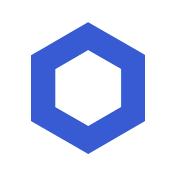When exploring the backbone of decentralized applications and blockchain interoperability, the distinctions between Internet Computer and Chainlink become pivotal. While the Internet Computer aims to revolutionize how web services are hosted and scaled directly on blockchain infrastructure, Chainlink focuses on connecting existing blockchains with real-world data through its pioneering oracles. This comparison sheds light on their unique architectures, use cases, and the roles they play in shaping the future of Web3. For enthusiasts and investors alike, understanding these differences is essential to grasp the potential impact each has on the evolving blockchain ecosystem.
Short on time? Jump to Internet Computer vs Chainlink Comparison
Understanding Internet Computer and Chainlink ?
The Internet Computer (ICP), developed by the DFINITY Foundation, positions itself as a decentralized, internet-scale computing platform capable of hosting websites, enterprise applications, and DeFi protocols directly on its blockchain network. Unlike traditional blockchains that focus on token transactions and smart contract execution, ICP emphasizes scalability, cost-efficiency, and interoperability, enabling developers to build complex, scalable, and user-friendly applications without relying on centralized cloud services.
Chainlink, on the other hand, is best known for its role as a decentralized oracle network. It bridges the gap between blockchains and external data sources, ensuring that smart contracts can securely interact with real-world information such as price feeds, weather data, or cross-chain assets. Chainlink’s focus is on enabling smart contracts to function reliably across multiple chains and integrating traditional financial systems with blockchain technology, thus expanding the utility and security of decentralized applications.
Both projects aim to enhance blockchain technology’s capabilities but approach this goal from different angles. The Internet Computer seeks to create a new decentralized internet infrastructure, capable of replacing traditional cloud providers, with a focus on scalability and ease of deployment. Chainlink, meanwhile, specializes in data integrity and interoperability, making sure that smart contracts can access and trust external data sources securely and efficiently.
This fundamental difference defines their respective architectures and use cases: ICP’s network acts as a self-sufficient cloud infrastructure, whereas Chainlink functions as a middleware layer that links various blockchains and off-chain data, facilitating complex DeFi and enterprise solutions. Their complementary roles are vital for the broader adoption of blockchain technology, with ICP providing the foundation and Chainlink enabling data-driven smart contract execution.
Key Differences Between Internet Computer and Chainlink
Primary Function
- Internet Computer: The Internet Computer is designed to serve as a decentralized cloud platform, capable of hosting web applications, enterprise solutions, and DeFi protocols directly on its blockchain. Its architecture aims to replace traditional cloud providers by offering scalable, cost-effective, and secure infrastructure for decentralized applications.
- Chainlink: Chainlink functions as a decentralized oracle network that connects blockchains with external data sources, APIs, and other blockchains. Its core purpose is to ensure data integrity and interoperability, enabling smart contracts to access real-world information securely and reliably.
Core Architecture
- Internet Computer: ICP utilizes a novel architecture based on subnetworks, sharding, and a consensus mechanism called Threshold Relay, supporting high transaction throughput (up to 11,000 TPS) and low-cost data storage. Its canister model encapsulates smart contracts in sandboxed environments that facilitate scalability and security.
- Chainlink: Chainlink relies on a network of decentralized oracles that aggregate data from multiple sources, providing tamper-proof feeds to smart contracts. Its architecture emphasizes security, decentralization, and cross-chain interoperability through protocols like CCIP (Cross-Chain Interoperability Protocol).
Use Cases
- Internet Computer: The Internet Computer is suited for building decentralized websites, social media platforms, enterprise-grade applications, and content delivery networks, aiming to create an internet-scale decentralized web.
- Chainlink: Chainlink is primarily used for DeFi applications, cross-chain asset transfers, insurance, supply chain tracking, and any scenario requiring reliable off-chain data inputs for smart contracts.
Interoperability & Data Access
- Internet Computer: ICP offers direct integration with other blockchains like Bitcoin and Ethereum, enabling cross-chain communication without bridges, simplifying interoperability for developers.
- Chainlink: Chainlink’s oracles facilitate cross-chain data transfer and interoperability, supporting multi-chain applications and cross-platform DeFi solutions with secure, verified data feeds.
Development Ecosystem
- Internet Computer: ICP provides its own programming language, Motoko, optimized for canister development, along with WebAssembly support for high performance. Its ecosystem is focused on scalable decentralized applications and web services.
- Chainlink: Chainlink integrates with various blockchain platforms and supports multiple programming languages, using standard API interfaces to connect data sources with smart contracts.
Internet Computer vs Chainlink Comparison
| Feature | ✅ Internet Computer | ✅ Chainlink |
|---|---|---|
| Primary Function | Decentralized cloud infrastructure hosting web and enterprise applications. | Decentralized oracle network for data access and cross-chain interoperability. |
| Transaction Speed | Supports up to 11,000 TPS with scalable sharding. | Dependent on individual oracle nodes; optimized for reliable data feeds, not raw transaction throughput. |
| Cost Efficiency | Storing 1GB of data costs about $5/year, enabling large-scale data hosting. | Costs vary depending on data source and network fees; focused on securing data feeds rather than hosting. |
| Interoperability | Supports direct integration with Bitcoin and Ethereum without bridges. | Provides cross-chain data transfer via CCIP and other protocols, facilitating multi-chain smart contracts. |
| Main Use Cases | Hosting websites, decentralized apps, content networks, and enterprise solutions. | DeFi protocols, asset tokenization, cross-chain transfers, and data-driven smart contracts. |
Ideal For
Choose Internet Computer: Developers and enterprises seeking a scalable decentralized platform to host web applications and services without relying on traditional cloud providers.
Choose Chainlink: DeFi developers, institutional investors, and enterprises needing secure, reliable data feeds and cross-chain interoperability for complex blockchain solutions.
Conclusion: Internet Computer vs Chainlink
The Internet Computer and Chainlink serve distinct yet interconnected roles within the blockchain ecosystem. ICP’s innovative approach to decentralized cloud hosting aims to transform how web services are built and scaled, emphasizing scalability, cost-efficiency, and direct blockchain interoperability. Chainlink, meanwhile, excels in providing secure, reliable data feeds and enabling cross-chain communication, essential for complex DeFi and enterprise applications.
Choosing between these platforms depends on specific project needs: if the goal is to build a scalable, decentralized web infrastructure, ICP offers a comprehensive environment. Conversely, for projects requiring secure data inputs, cross-chain functionality, and integration with existing blockchains, Chainlink provides indispensable middleware. Both are pivotal for realizing the full potential of Web3, and their complementary features will likely drive the next wave of blockchain innovation.






